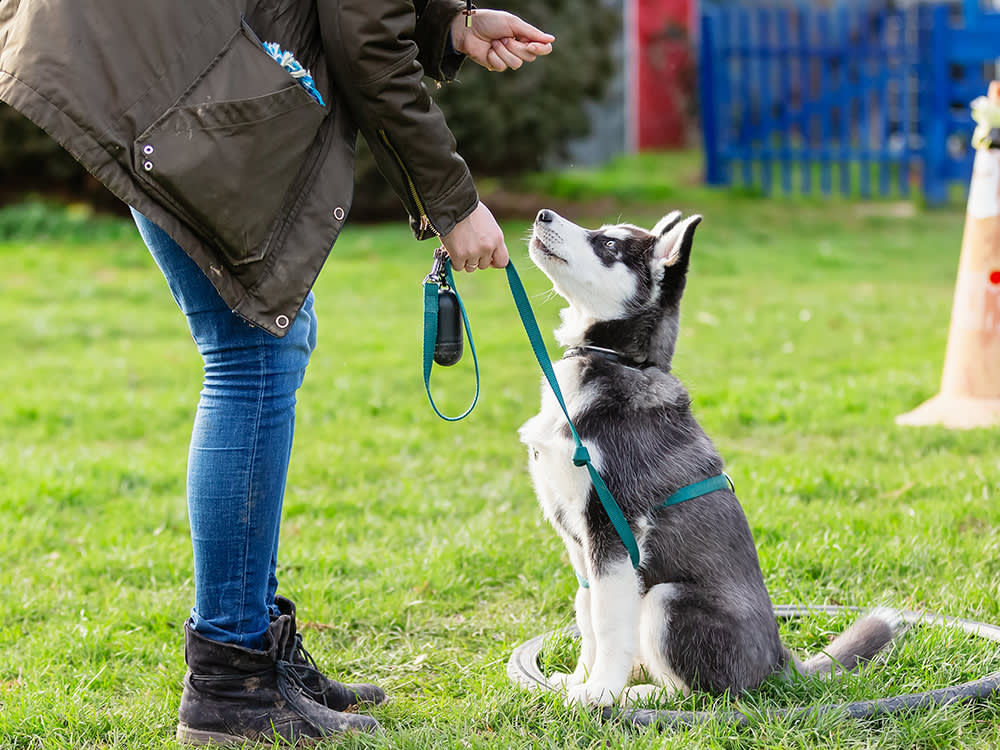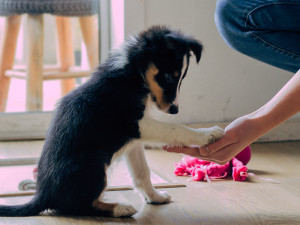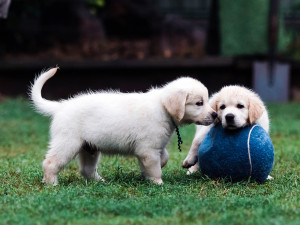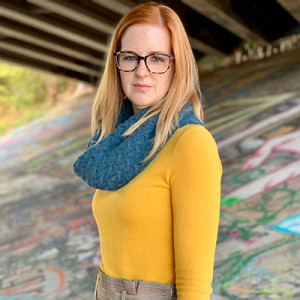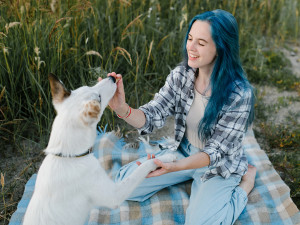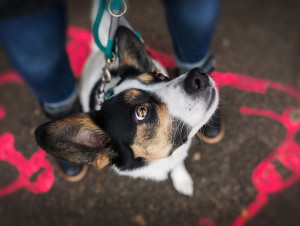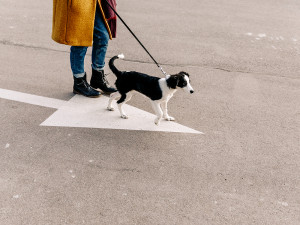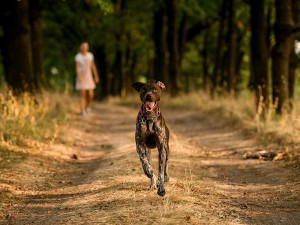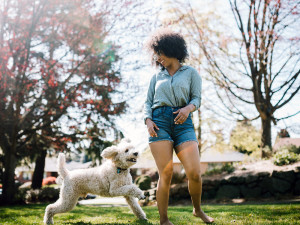How to Find a Qualified Trainer for Your New Dog
The questions to ask and credentials to look out for to find the right trainer for your dog, according to a pro.
You’ve had a family meeting with your dog and decided it’s time to call in an expert. Great work. Get excited for mix-and-mingle puppy socialization classes or one-on-ones with the perfect trainer for you. But you can’t trust just anyone with your dog, right? One-thousand percent correct.
Choosing the right trainer to give the honor of working with you and your dog can seem like an overwhelming, daunting leap of faith. Don’t worry. We got you. Here’s our insider/trainer’s eye view to help take the mystery out of your search and make sure you and your dog have a safe, positive experience.
This first part is unfortunate but true: There are zero regulations in the dog-training industry. That means anyone and their neighbor can say they’re a dog trainer with no professional experience or education and charge money to train dogs. This not only leads to serious harm to dogs with dangerous and outdated methods, but wasting your valuable time and money with ineffective training. All the more reason to ask all the right questions and know the red flags to look out for.
What’s the trainer’s M.O.?
The most important thing to find out about a trainer is how they will train your dog. Science and experience over the years have made it clear that “positive reinforcement” or “reward-based” training is the most effective and humane way to train dogs. Positive methods focus on the use of rewards, usually food, to make the behavior you want to happen happen and the withholding of rewards to make unwanted behaviors less likely. Your dog will be the happiest student ever.
How much do you spend on your pet per year?
Positive trainers avoid the use of any negative techniques and tools, such as electronic collars (shock collars), prong collars, choke collars, leash corrections, and other forms of punishment. These methods often only suppress undesirable behaviors and have been proven to cause additional behavior problems, like fearfulness, aggression, and learned helplessness. These are all problems that usually take longer to fix than the initial training issue.
Some trainers use a mix of rewards and punishment — a key watch-out is for the term “balanced trainer.” Balance is great in every other part of your life except training, where it’s a euphemism for the ambiguity of rewarding and punishing your dog for behaviors.
What credentials should a trainer have?
In an unregulated industry, there are many paths to a quality education as a professional trainer, but “loves dogs,” “have had dogs all my life,” or “have worked with dogs for 10 years” don’t qualify. While experience is important, dog training and behavior modification is a science. Understanding how dogs learn, how to effect and change behavior humanely, and how to read dog body language are skills that require study. Some respected dog training certifications to look for in your trainer search (list is not exhaustive):
KPA-CTP
CTC
CPDT-KA
CBCC-KA
CDBC
VSA-CDT
Each of these organizations has a search to find one of their certified trainers by location. But certifications aren’t a full-proof guarantee. Just because a trainer has letters after their name, doesn’t mean they uphold the standards of the certifying organization or they will be a good match for you. Do your research, ask questions, and make sure you know what’s going to happen during your training sessions.
And just because a dog trainer has a laundry list of education, doesn’t mean they have experience or are a good teacher. Dog training is often 75 percent training people and 25 percent training dogs, so your person should be able to speak to you just as well as they can speak to your dog.
Questions to ask before hiring a trainer:
What method of training do you use?
What is your education? Do you have any certifications/belong to any professional organizations?
What equipment will you use on/with my dog?
What happens if my dog makes a mistake / gets it wrong?
Can you provide references?
If any of the answers to these questions leave you feeling uneasy, uncomfortable, or the dog trainer asks you to do things to/with your dog you feel are wrong, don’t hire them. It’s that easy. Just because they’re the “professional” doesn’t mean they’re right for your dog. And take a look around a potential trainer’s social media — sometimes you’ll get a more revealing sense of their vibe, good or bad, than you might from a direct answer.
Red flags and clues you can use
No one is going to say their methods are outdated, dangerous, and unsupported by science, but if you know how to spot the red flags and what’s behind them, you’ll have all the clues you need to know when to steer clear. Here are some widely agreed-upon red flags to identify trainers using old school and harmful methods:
They use language like “alpha/dominance/pack leader.” These theories and methods have been long debunked in the current dog training world and don’t meet the standards of science-based training.
They won’t or don’t use food.
They focus on punishing behaviors rather than rewarding behaviors.
They offer guarantees or quick behavior changes. There is no guarantee when dealing with a living being, and training takes time. Don’t fall for magical cures or a 100 percent guarantee. That’s not a thing.
For all of us, it takes research to find the right trainer for our dogs. Get references, ask all the questions, and find someone you and your dog can trust. The training process should always be fun, educational, safe, and positive.
